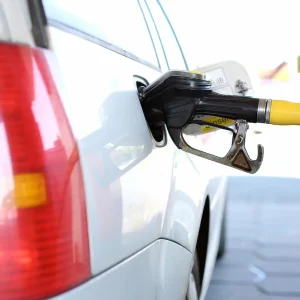The Society of Motor Manufacturers and Traders has called on Transport for London to take a stricter approach with its Ultra Low Emissions Zone, with penalties for all vehicles that are not powered by a Euro6 petrol or diesel engine.
The ULEZ will require all vehicles driving in central London to meet new exhaust emissions standards.
The standards would take effect from 7 September 2020, and operate 24 hours a day, seven days a week. TfL has launched a public consultation on the ULEZ to gain feedback on its plans.\
The current proposals for an ULEZ for London dictate a 2006-standard Euro4 requirement for petrol vehicles, while diesels must comply with the latest Euro6 standards. The proposed requirements also differ for cars and vans.
Mike Hawes, SMMT chief executive, said: “The implementation of the ULEZ will accelerate the take-up of ultra low and low-emission vehicles, but a harmonisation of standards – a technology-neutral approach – for petrol and diesel vehicles would strengthen the initiative.”
He continued: “The SMMT is urging London to be more ambitious with a universal Euro6 standard for both petrol and diesel vans and cars, which would remove any confusion, strengthen the uptake of cleaner technology, and bring air quality benefits sooner.”
Hawes defended diesel as a fuel and said today’s diesel vehicles are “light years away from those built just a decade ago”.
He said: “Intelligent engine design and highly efficient exhaust after-treatments, including particulate filters, capture over 99% of particulates and around two thirds of NOx emissions. ULEZ proposals should support the introduction of these technologies now, technologies that are being introduced ahead of the ever-tougher legislative requirements that will be implemented over the next few years.”
Given the introduction date of 2020 for the ULEZ, the SMMT said the current rules set out would allow petrol vehicles of up to 14 years of age to enter without penalty.
Euro6 petrol and diesel vehicles are on sale now and mandatory from next year meaning that under the SMMT’s proposals, by 2020, qualifying vehicles would be up to six years old and potentially on their third owner.
Average CO2 emissions for new cars in the UK in 2013 were 128.3g/km, down 29.1% since 2000.
Looking to the future, Hawes said: “We need an integrated approach on air quality at local, regional, national and European levels.
“Fleet renewal, or the uptake of new vehicles on the road, is critical in reducing emissions. Proposals such as London’s ULEZ can help deliver this goal. Air quality is often a local issue so we need a flexibility that allows for focused initiatives like the ULEZ, but which sit within an overall framework of harmonised standards across Europe.
“The automotive sector must have certainty in policy direction so technology investments can be targeted on addressing key issues such as air quality and climate change.”





